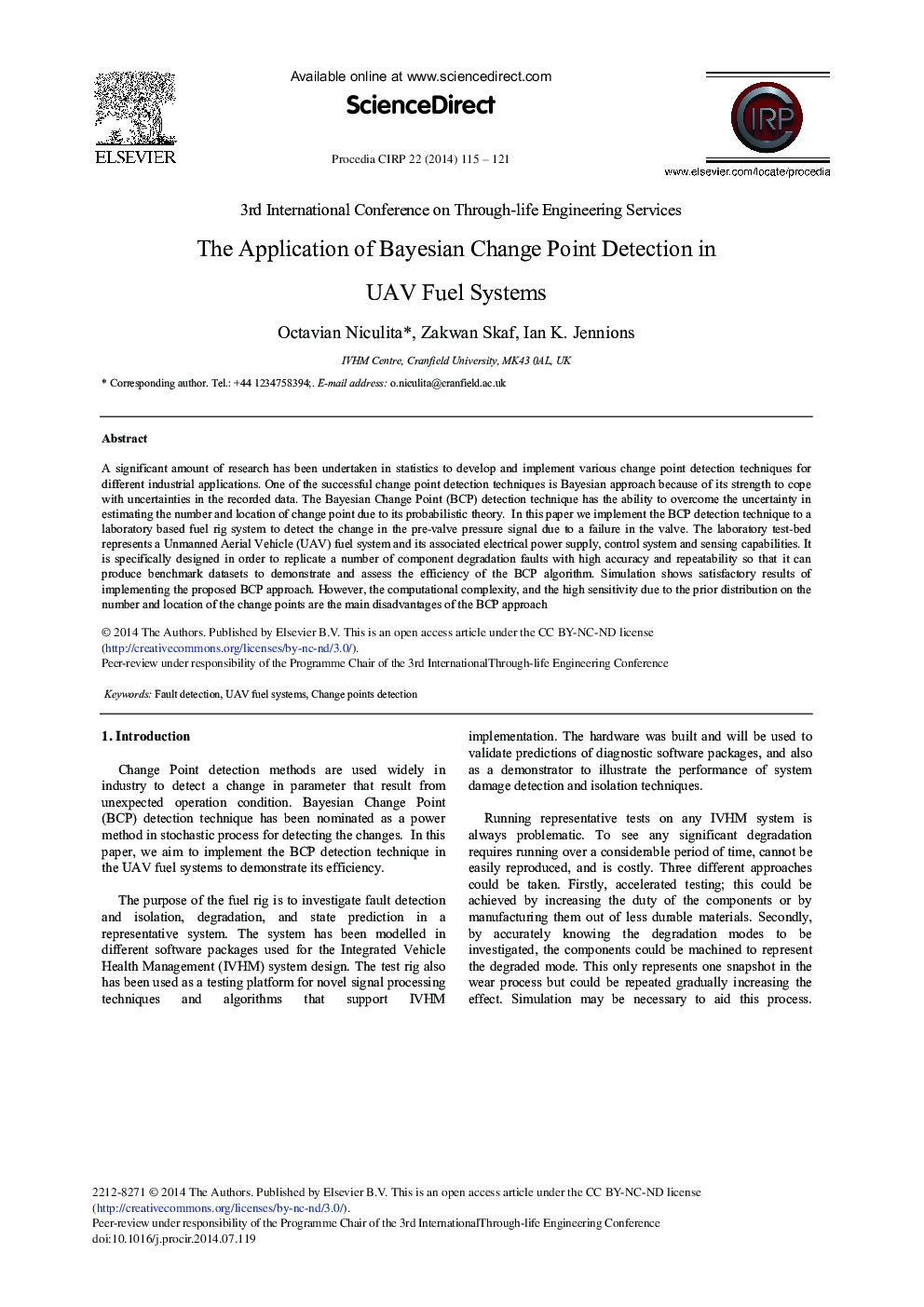| Article ID | Journal | Published Year | Pages | File Type |
|---|---|---|---|---|
| 1699854 | Procedia CIRP | 2014 | 7 Pages |
A significant amount of research has been undertaken in statistics to develop and implement various change point detection techniques for different industrial applications. One of the successful change point detection techniques is Bayesian approach because of its strength to cope with uncertainties in the recorded data. The Bayesian Change Point (BCP) detection technique has the ability to overcome the uncertainty in estimating the number and location of change point due to its probabilistic theory. In this paper we implement the BCP detection technique to a laboratory based fuel rig system to detect the change in the pre-valve pressure signal due to a failure in the valve. The laboratory test-bed represents a Unmanned Aerial Vehicle (UAV) fuel system and its associated electrical power supply, control system and sensing capabilities. It is specifically designed in order to replicate a number of component degradation faults with high accuracy and repeatability so that it can produce benchmark datasets to demonstrate and assess the efficiency of the BCP algorithm. Simulation shows satisfactory results of implementing the proposed BCP approach. However, the computational complexity, and the high sensitivity due to the prior distribution on the number and location of the change points are the main disadvantages of the BCP approach
